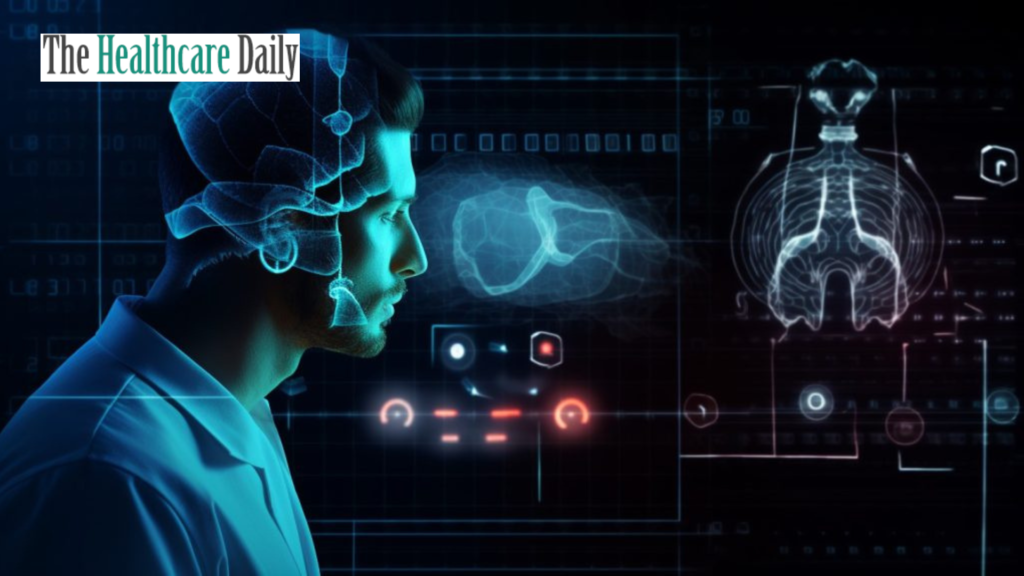In the modern healthcare, the amalgamation of Artificial Intelligence (AI) with diagnostics has initiated a monumental shift. AI-powered diagnostics is a fusion of machine learning algorithms and medical data analysis, are fundamentally reshaping healthcare practices. Their implementation leads to the delivery of faster, more precise results, fundamentally transforming the paradigm of patient care.
The Role of AI in Healthcare
Speed and Accuracy in Diagnostic Results

Transformative Impact on Medical Imaging
The profound influence of AI in healthcare is particularly evident in the sphere of medical imaging, especially within the domain of radiology. AI-powered algorithms exhibit remarkable efficiency in analyzing a diverse array of medical images, including X-rays, MRIs, and CT scans. These algorithms, leveraging machine learning capabilities, adeptly assist in the detection of various diseases and abnormalities, thereby playing a significant role in enabling prompt and precise interventions.
The transformative potential of AI in healthcare is underscored by its capacity not only to expedite diagnoses but also to significantly enhance the quality of medical evaluations. Consequently, it substantially contributes to the refinement of medical assessments, ultimately leading to an augmentation in patient care standards and a remarkable increase in prognostic accuracy. This fusion of advanced technology with healthcare practices signifies a monumental stride towards more efficient and effective medical interventions, promising a brighter future for patient outcomes.
Enhanced Precision in Medical Assessments

AI-powered diagnostics substantially elevate diagnostic precision by mitigating errors inherent in traditional diagnoses. This precision-driven approach streamlines the diagnostic trajectory, markedly minimizing instances of misdiagnosis and ensuring the prompt and apt initiation of treatment modalities for patients. By augmenting the capabilities of healthcare professionals, AI effectively mitigates diagnostic uncertainties, culminating in an overall enhancement of healthcare outcomes.
Patient Monitoring and Personalized Medicine
The integration of AI in healthcare stands as a significant advancement, as it seamlessly enables the continual analysis of patient data. This robust system not only identifies potential health issues early but also ensures a proactive approach to healthcare. Through AI-powered analytics, healthcare professionals can intervene in a timely manner, crafting personalized treatment plans that cater precisely to each individual’s unique needs. Real-time monitoring and analysis of health parameters serve as the cornerstone of proactive healthcare management, acting as a vigilant guardian against the progression of health complications. This transformative technology has the potential to preemptively address issues, significantly enhancing patients’ quality of life and revolutionizing the landscape of modern healthcare.
Efficiency in Medical Practices
AI-driven automation serves as a cornerstone in streamlining workflows, liberating healthcare professionals to allocate more attention to patient care and intricate decision-making processes. This exponential increase in operational efficiency inherently enriches the overall patient experience. With routine tasks seamlessly managed by AI, healthcare providers are endowed with more opportunities for direct patient engagement, thereby elevating the quality of care and nurturing robust patient-provider relationships.
Challenges and Future Prospects

Despite the advantages, AI-powered diagnostics encounter many challenges, including concerns pertaining to data privacy, algorithm biases, and the imperative need for rigorous system validation. Ongoing research endeavors relentlessly aim to surmount these challenges, heralding a future where healthcare embodies utmost reliability and trustworthiness. The enforcement of ethical AI practices and the formulation of stringent regulatory frameworks stand as an important steps in harnessing the complete potential of AI in healthcare.
Conclusion
The dawn of AI-powered diagnostics marks an epochal juncture in healthcare, ushering in an era characterized by swifter, more precise results that fundamentally revolutionize patient care. While challenges persist, the continuous evolution of technology promises a future where healthcare stands as a paragon of efficiency, precision, and personalized care, ultimately benefiting patients on a global scale. The fusion of AI with diagnostics serves as an exemplar of technology’s capacity to enrich and broaden the horizons of healthcare services universally.






















